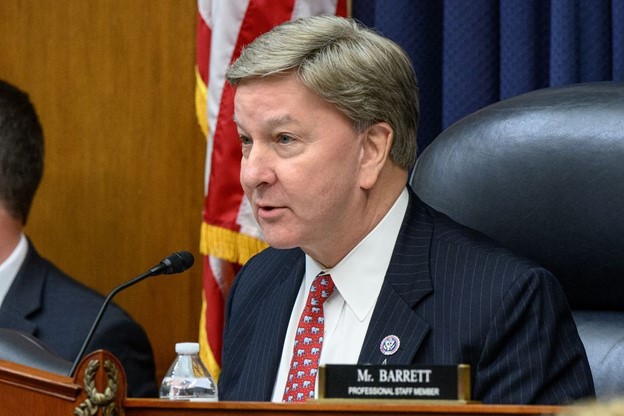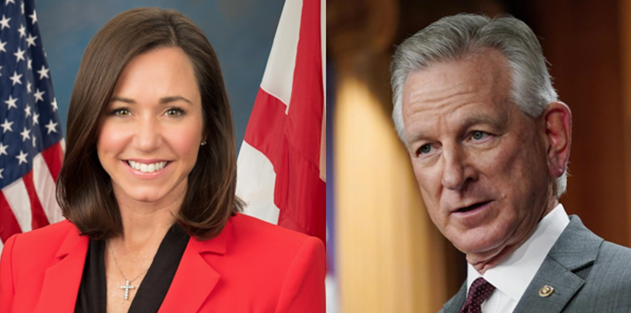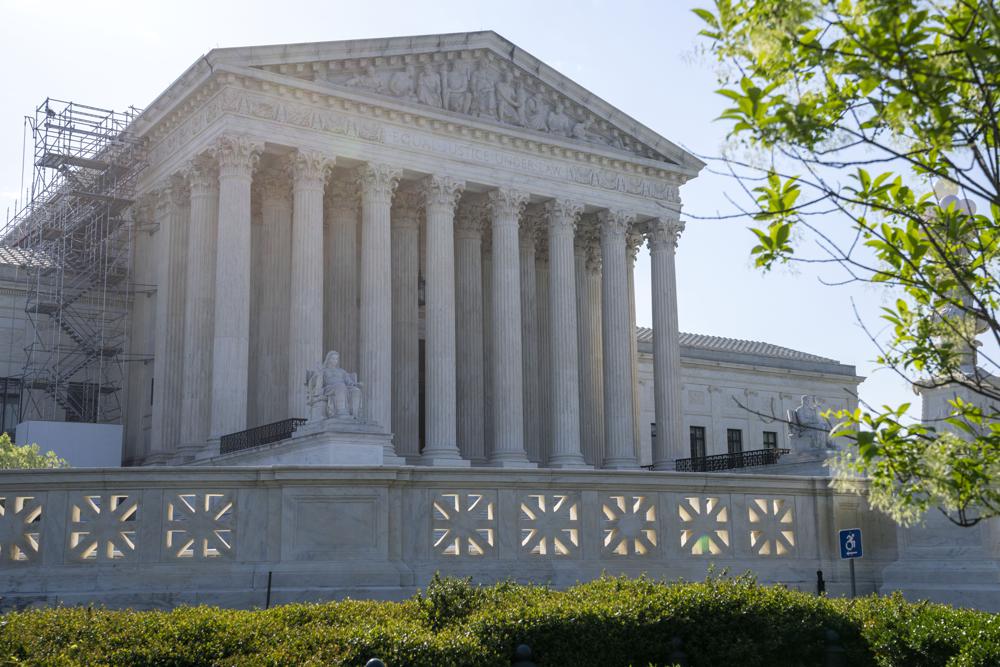Birmingham, Alabama-based Hardware Park receives $250,000 Innovate Alabama grant, announces documentary

Hardware Park, Birmingham’s hub for physical product development, has been awarded a $250,000 grant by Innovate Alabama, fueling Hardware Park’s ongoing commitment to promote medical device innovation in Birmingham. The grant arrives as the nonprofit unveils a documentary chronicling its inaugural MedTech Design Experience, which brought together eight Birmingham metro high school students for a two-week exploration of medical device design and prototyping. “The Innovate Alabama grant and our documentary release underscore our strategy to intertwine education, innovation, and community engagement,” said Hardware Park Executive Director Mark Conner. Innovate Alabama, led by CEO Cynthia Crutchfield and 11 board members appointed by Gov. Kay Ivey, is Alabama’s first statewide public-private partnership focused on entrepreneurship, technology, and innovation. The partnership recently launched Innovate Alabama Network, a comprehensive resource to connect communities, nonprofits, and higher education institutions across Alabama fostering innovation in their local footprint. Fifty-one designees in 17 Alabama counties make up the group, which received $9.3 million in supporting funds from Innovate Alabama. Alabama Power is among the supporters of Innovate Alabama. “The Innovate Alabama Network is a major step forward to growing the entrepreneurial and innovation environment in Alabama,” Crutchfield said. “By providing funding and resources to our local communities, nonprofits, and higher education institutions, we are developing a statewide network for innovation programming and catalyzing entrepreneurship in all of our communities, both rural and urban.” Located in downtown Birmingham, Hardware Park covers two city blocks and houses a variety of businesses in manufacturing, engineering, and product design. The grant will significantly amplify Hardware Park’s ability to provide educational programming for budding medical device engineers in high school and college, according to Conner. The documentary, crafted by Birmingham locals Gabriel Talley and Robert Hill of Uphill Growth, vividly (and comically) captures the MedTech Design Experience journey, according to a Hardware Park news release. Slated for release on Nov. 14 at TechBirmingham’s Tech Tuesday event, the documentary portrays the journey of eight young aspiring engineers: Jeremy Harper (Ramsay High School), Enoch Booher (Vestavia Hills High School), Brooks Denson (Homewood High School), Caren Smith (Woodlawn High School), Joseph Drake (Carver High School), Matthew Eligwe (Hoover High School), Molly Elmore (Vestavia High) and Isaiah Williams-Scott (Restoration Academy). Hardware Park, Conner said, invites the community, potential entrepreneurs, and the media to delve deeper into the nonprofit’s initiatives, join the narrative, and support the journey towards a thriving medical device ecosystem in Birmingham. “Hardware Park’s dedication to hands-on engineering and design education is not only empowering our youth but also positioning our city at the forefront of medical technology advancements,” Birmingham Mayor Randall Woodfin said. “I am excited about the positive impact Hardware Park is bringing to our community.” Republished with the permission of The Alabama NewsCenter.
Mike Rogers urges Senate to go to conference on the NDAA

On Friday. Congressman Mike Rogers (R-AL03) released a statement urging the Senate to go to conference on the FY24 National Defense Authorization Act (NDAA). Rogers is the Chairman of the House Armed Services Committee. “For the first time in two years, we have the opportunity to return to regular order and hold a conference to work out the differences between the House and Senate bills,” Chairman Rogers said. “Unfortunately, for over seven weeks, the Senate has refused to agree to a conference and name their conferees. It’s vital that Congress come together to enact an NDAA that will build the ready, capable, and lethal fighting force we need to defend our nation. The House is ready to get to work – I urge the Senate to join us.” Rogers explained that the NDAA is legislation that authorizes funding for the Department of Defense and ensures that Congress fulfills its constitutional duty to make sure that our warfighters have the training and equipment that they need. The Senate passed a largely bipartisan NDAA with no controversial political planks. The House Armed Services Committee did the same, and the NDAA passed out of committee with wide bipartisan support. However, once the NDAA got to the floor of the Republican-controlled U.S. House of Representatives, the Republican majority added a number of GOP priorities to the bipartisan version of the NDAA. One of these is a plank overturning President Joe Biden’s military abortion policy. Congresswoman Terri Sewell (D-AL07) voted against the NDAA due to the Republican changes on the floor. “I did not take this vote lightly,” Sewell said. “I have proudly voted in favor of the annual defense bill every year since coming to Congress. But I cannot and will not support a bill that would rip basic health care away from our service members and make bigotry and discrimination a centerpiece of our defense policy. Republicans need to stop playing politics with our national security.” If the NDAA goes to a conference committee, a bipartisan committee of Senators and Representatives will produce a compromise version of the NDAA. The Senate’s Democratic Party leadership does not want to go into conference committee with any of those Republican planks even being a negotiating point and has thus far resisted even going to conference on the differences between the two bills. Weeks that could have been spent on the NDAA and the budget were instead wasted in a mindless battle for power between squabbling Republican House members over which one of them was allowed to hold the Speaker’s gavel – two weeks were also wasted on this same pettiness back in January. The annual NDAA should have been passed and signed by the President by September 30. Mike Rogers represents Alabama’s Third Congressional District. To connect with the author of this story or to comment, email brandonmreporter@gmail.com.
Stephanie Petelos Nabavian reelected as Chair of the Greater Birmingham Young Republicans

The Greater Birmingham Young Republicans (GBYRs) met on Thursday to hold their officer elections. Chair Stephanie Petelos Nabavian was elected to her second term as GBYR Chairperson, defeating challenger Christian Brown. “I am so happy to continue leading the Greater Birmingham Young Republicans!” Petelos said in a statement on Facebook. “The results last night, 85% in my favor, prove that our membership are excited to continue our path of growth, hosting unique events, and building a strong community of like minded and passionate young people. I am so thrilled about the exceptional new board I get to serve with! Thank you so much for allowing me to continue serving you!” Petelos told Alabama Today that in the last year, she grew the club to such a point that they were able to break off the Shelby County Young Republicans as their own group. She hopes to possibly do the same, creating other groups, perhaps Gardendale, in the future. “With kids and a long work day, it is asking a lot for them to get on Interstate 65 and fight traffic to get here (Vestavia Hills). Some of them aren’t able to do that,” Petelos said. Petelos is also the Chair of the Alabama Federation of Young Republicans. Petelos told Alabama Today that the COVID-19 global pandemic and the shutdown of the restaurants had a detrimental effect on the Young Republicans statewide. She said her goal is to grow the GBYRs to what they were a few years ago before the group’s more recent setbacks. Petelos previously was the Chair of the Federation of College Republicans. She recently got married and finished law school. She is the daughter of former Hoover Mayor and Jefferson County Manager Tony Petelos. Her mother is a former Jefferson County judge. Brown said that running for the position was a “learning experience.” Josh Cox was elected Vice Chair, and Taylor Martin was elected Secretary. In other business, the group voted to hold the GBYR Christmas Party on Tuesday, December 12, at the Fish Market Restaurant in downtown Birmingham. Alabama Secretary of State Wes Allen (R) is expected to be the speaker. New Jefferson County Commissioner Mike Bolin (R) addressed the group. “This is a treat for me to come meet with the yrs because I missed this when I was coming through,” Bolin said. Bolin is a former Jefferson County Probate Judge and a former Alabama Supreme Court Justice. He was elected to the Jefferson County Commission this summer in a special election when Steve Ammons left the Commission to accept a new position. “Some of you here will hold elected office,” Bolin said. “It might be county commissioner, it might be a judge, it might be governor.” Eric Lee discussed the special election coming up in January in House District 16. HD16 represents part of western Jefferson County, Northern Tuscaloosa County, and Fayette County in the Alabama House of Representatives. Republican Brian Brinyark faces Democrat Bubba Underwood. The seat was previously held by Rep. Kyle South (R-Fayette), who left on July 1 to accept a role with the West Alabama Chamber of Commerce. Lee said he is working with Terry Richmond and the Jefferson County Republican Party to help get out the Republican vote for that special election to elect Brinyark. They need phone bankers to call Republican voters in HD16 to remind them to come to the polls. Lee said that the next meeting of the Jefferson County Republican Party Executive Committee is November 21 at the Homewood Public Library. To connect with the author of this story or to comment, email brandonmreporter@gmail.com.
U.S. Department of Justice to join suit against AG Steve Marshall’s abortion prosecution threats

by Alander Rocha, Alabama Reflector The U.S. Department of Justice (DOJ) is joining a lawsuit seeking to stop Alabama Attorney General Steve Marshall from prosecuting those who help Alabama women obtain abortion services out of state. In a motion to intervene filed on Thursday, attorneys for DOJ argued that the right to travel between states was a fundamental American right, dating back to the Articles of Confederation. The filing cited a clause of the 14th Amendment in arguing that the right to travel is one of the rights of national citizenship provided by the Constitution. “The right to travel embraces more than just physical movement; it also protects an individual’s right to engage in conduct that is lawful in other states while in those states, regardless of their home state’s laws,” the motion stated. The lawsuit, filed on July 31 by former abortion providers in the state, cited comments made by Marshall in an August 2022 radio interview, where he suggested Alabamians helping people obtain legal abortion care in other states could face felony prosecutions. The lawsuit alleges Marshall’s comments and the threat of prosecution forced healthcare providers to cease providing critical information, counseling, and practical support to Alabamians exercising their constitutional right to access medical care across state lines. After the lawsuit was filed, Marshall renewed his threats to prosecute out-of-state abortion care. U.S. District Judge Myron Thompson postponed a hearing set for Oct. 31, and the hearing has not been rescheduled. The DOJ motion Thursday argued that states lack the authority to prohibit travel across state lines and can’t prevent third parties from helping individuals seek an abortion out-of-state. “The Alabama AG cannot undermine the right to travel by making each traveling individual an island unto themselves, prohibited from receiving assistance from anyone else within the state,” attorneys for DOJ wrote. Health care providers sue Alabama officials over threats of prosecution in abortion aid The motion further argued that the United States and its federal agencies have an interest in states not criminalizing travel, or the assistance of travel, across state lines to access healthcare. “The United States has a sovereign interest in preserving the proper functioning of the federal system, including by ensuring that one state does not improperly intrude into the affairs of other states, thereby protecting the integrity of the Union itself,” the motion stated. The motion also referenced Supreme Court Justice Brett Kavanaugh’s opinion in Dobbs v. Jackson Women’s Health Organization, the 2022 ruling that struck down the right to abortion. “As Justice Kavanaugh has explained, the question of whether a State may ‘bar a resident of that State from traveling to another State to obtain an abortion’ is ‘not especially difficult’ — ‘the answer is ‘no’ based on the constitutional right to interstate travel,’” according to the motion. The motion also argued that the state does not have the right to prevent organizations or individuals from providing help for out-of-state abortion care, noting that the Supreme Court has ruled that helping people travel is equally protected. When a state prevents third-party assistance for travel, the motion argued, it violates that right to travel. If restrictions were allowed for conduct that the state prohibits, that could open the door to “problematic state laws.” “A state that criminalized gambling could go further and prevent its residents from assisting with travel to casinos in Mississippi or Nevada, based solely on its policy disagreement with those states on that issue,” the motion said. The attorney general’s office had not responded to the motion as of Thursday evening. Alabama Reflector is part of States Newsroom, a network of news bureaus supported by grants and a coalition of donors as a 501c(3) public charity. Alabama Reflector maintains editorial independence. Follow Alabama Reflector on Facebook and Twitter.
Sens. Tommy Tuberville and Katie Britt warn Biden Administration proposal would limit credit access for Americans

On Monday, Senators Tommy Tuberville (R-Alabama) and Katie Britt (R-Alabama) joined Senator Tim Scott (R-South Carolina) and 36 other Senators in a letter urging the Federal Reserve (Fed), the Federal Deposit Insurance Corporation (FDIC), and the Office of the Comptroller of the Currency (OCC) to withdraw the Basel III Endgame capital rule proposal. Tuberville and colleagues warn that the over one-thousand-page proposed rule setting new capital requirements for borrowers would limit credit access for millions of Americans. The Senate Banking Committee is set to hear testimony from the financial regulators on Tuesday, where Republicans will press the regulators on what they consider to be regulatory overreach that fails to consider downstream impacts on everyday Americans. Tuberville wrote on X, “Biden’s bank capital rule will hurt main street by making it harder for Americans to get loans. The rule undermines economic growth and makes it harder for working folks to get ahead.” “We have serious concerns that, as proposed, Basel III will restrict billions of dollars in capital from those who need it most, resulting in costlier and more limited access to credit for millions of Americans,” the letter states. “This would create severe, adverse impacts on the entire U.S. economy, from everyday American consumers to the small businesses that are the backbone of our economy.” “Ultimately, these large increases in capital have not been shown to be evidentially based as the Federal Reserve, FDIC, and OCC have failed to provide proper analysis or data to justify their merits, particularly around the costs they will impose throughout all sectors of the economy,” the Senators wrote. “In fact, we have heard widespread concerns regarding the negative impacts that Basel III could have not only on affordable housing but on mortgage lending writ large, small business lending, and consumer lending. In addition, it would limit the availability of access to credit cards and home equity lines of credit.” “This proposal will ultimately put U.S. companies at a competitive disadvantage globally and could force U.S. companies to search for access to financial services from abroad, rather than here at home,” the Senators continued. “Moreover, the proposal disproportionately harms companies that are not publicly listed, who happen to be middle market, private entities, and our millions of small businesses across the country. Each of these potential consequences would have major ramifications alone, but taken in totality, they pose significant harm throughout the economy, particularly in the face of current economic headwinds and tightening credit conditions.” In their letter to the Fed, FDIC, and OCC, the signers argue the capital proposal lacks proper economic analysis and will result in costlier and more limited access to credit for Americans, hurting the U.S. economy. The Senators concluded, “As American consumers continue to struggle with persistently high inflation, reduced access to affordable homeownership, and a slowing economy driven by the reckless spending of the Biden administration, any proposed changes to our bank regulatory framework must be based on demonstrable benefits and needs, not pre-determined agendas which will only serve to harm the economy and consumers alike. Accordingly, we urge you to withdraw the Basel III Endgame proposal as written and urge the Federal Reserve, the FDIC, and the OCC to operate in a more transparent and justified manner.” The “Basel III endgame” is a proposal for stricter bank capital requirements aimed at ensuring the stability of big banks. Proponents believe that the proposal would modify large bank capital requirements to better reflect underlying risks and increase the consistency of how banks measure their risks. The changes would implement the final components of the Basel III agreement. The proposal would apply to banks with $100 billion in assets or more and to smaller firms with “significant” trading activities. Senator Tuberville represents Alabama in the United States Senate and is a member of the Senate Armed Services, Agriculture, Veterans Affairs, and HELP Committees. To connect with the author of this story or to comment, email brandonmreporter@gmail.com.
U.S. Supreme Court unveils new ethics code, but critics say it doesn’t go far enough

by Ashley Murray, Alabama Reflector WASHINGTON — The U.S. Supreme Court released a new ethics code Monday, just days before the Democrat-led U.S. Senate Committee on the Judiciary again attempts to subpoena two high-profile GOP donors following revelations that justices accepted undisclosed luxury trips and engaged in other potential conflicts of interest. Despite the headlines and the committee’s springtime request that Chief Justice John Roberts appear before the panel, Roberts has maintained that the court already followed its own ethics guidelines. But Monday’s 15-page code of conduct, co-signed by all nine justices, is a new maneuver by the court to publicize its standards. The document states in its opening that the rules are “not new” and that the court has “long had the equivalent of common law ethics rules.” “The absence of a Code, however, has led in recent years to the misunderstanding that the Justices of this Court, unlike all other jurists in this country, regard themselves as unrestricted by any ethics rules,” the document states. “To dispel this misunderstanding, we are issuing this Code, which largely represents a codification of principles that we have long regarded as governing our conduct.” The five “canons” outlined over eight pages include that: A justice should uphold the integrity and independence of the judiciary. A justice should avoid impropriety and the appearance of impropriety in all activities. A justice should perform the duties of office fairly, impartially, and diligently. A justice may engage in extrajudicial activities that are consistent with obligations of the judicial office. And, a justice should refrain from political activity. Durbin: Code falls short Sen. Dick Durbin, chair of the Senate Judiciary Committee, said the new rules “fall short of what we could and should expect when a Supreme Court issues a code of conduct.” The court’s new code “does not appear to contain any meaningful enforcement mechanism to hold justices accountable for any violations of code. It also leaves a wide range of decisions up to the discretion of individual justices, including decisions on recusal from sitting on cases,” the Illinois Democrat said on the Senate floor Monday. “I’m still reviewing the court’s new code of conduct for now. I will note that the court’s adoption of this code marks a step in the right direction.” Durbin and fellow Democrats on the Judiciary panel had planned to vote last week to subpoena high-profile Republican donors Harlan Crow and Leonard Leo, who bankrolled luxury travel for conservative Justices Clarence Thomas and Samuel Alito. The vote to subpoena Crow and Leo, who Durbin claims have been uncooperative, was called off due to “scheduling issues,” Durbin said last week. Sen. Sheldon Whitehouse, a Rhode Island Democrat who sits on the committee, attributed the delay Thursday to the panel’s Republicans introducing dozens of amendments that “jammed the gears of the committee.” Whitehouse, whose Supreme Court ethics bill was passed favorably out of committee in July, called the court’s release Monday “long overdue” and lacking. “The honor system has not worked for members of the Roberts Court. My ethics bill would create a transparent process for complaints and allow a panel of chief judges from the lower courts to investigate and make recommendations based on those complaints,” Whitehouse said in a statement Monday. The committee is again scheduled to vote on the subpoenas this coming Thursday. Ethics questions In April, ProPublica chronicled years of private jet and yacht excursions paid for by Crow that Thomas never disclosed. The nonprofit investigative outfit also revealed that Thomas did not disclose a real estate transaction with Crow. Following the ProPublica revelations, Politico reported that Justice Neil Gorsuch did not identify the purchaser who bought a 40-acre plot in Colorado co-owned by the justice — a sale from which he made between $250,001 and $500,000, according to federal disclosure forms. The purchaser turned out to be attorney Brian Duffy of the law firm Greenberg Traurig who has since argued numerous cases in front of the court. The spring revelations set in motion a series of hearings by the Senate Committee on the Judiciary and its subcommittees. Roberts was invited to but declined to attend the first of the hearings in early May. In June, ProPublica revealed that Alito attended a fishing expedition in Alaska paid for and organized by Republican donors, including Leo. In July, The Associated Press uncovered that Justice Sonia Sotomayor allegedly directed taxpayer-funded court staff to schedule speaking engagements related to her literary work and pitch sales of the justice’s books, according to the AP’s reporting. Through more than 100 public records requests, the AP uncovered details about the court staff’s involvement in promoting Sotomayor’s memoir and children’s books — from which the justice has earned roughly $3.7 million. Alabama Reflector is part of States Newsroom, a network of news bureaus supported by grants and a coalition of donors as a 501c(3) public charity. Alabama Reflector maintains editorial independence. Follow Alabama Reflector on Facebook and Twitter.
Katie Britt, Tommy Tuberville, and Senate colleagues introduce bill to force Administration to make catch-and-release data public

U.S. Senator Katie Britt (R-Alabama) recently joined Senators Tommy Tuberville and John Cornyn (R-Texas) in legislation to require the U.S. Department of Homeland Security (DHS) to accurately report how it is handling migrants encountered at the border and ensure the American people have a complete, timely accounting of the number of migrants being released into the United States by the Biden Administration. The three Senators joined over 20 of their Senate Republican colleagues in introducing the Southern Border Transparency Act. “Republicans are offering solution after solution to President [Joe] Biden’s border crisis, which recently shattered a new record of eight million illegal border crossings since this Administration took office,” said Senator Britt. “The American people deserve accurate, timely information on how this Administration is abdicating its obligation to secure our homeland and keep our communities and families safe. This legislation would further expose the fact that President Biden’s reckless catch-and-release policies have manufactured the largest humanitarian and national security crisis at the border in United States history.” “The Biden administration is trying to hide the fact that it’s created the worst border crisis in American history,” said Sen. Tuberville. “For nearly three years, we’ve had record numbers of illegal immigrants and deadly drugs pour across our southern border with no accountability. Some of these illegal entries are on the terrorist watchlist—and we have no idea where they are in the U.S. American lives are at stake. It’s past time for us to know who is coming across our border and why Joe Biden is allowing them to stay here illegally on the taxpayer dime. I’m proud to help support this targeted legislation that ensures Joe Biden can’t hide anymore.” “The Biden administration has gone to great lengths to hide record levels of illegal immigration at the southern border, but Americans deserve to know exactly how many migrants are being released into our country,” said Sen. Cornyn. “This legislation would shine a bright light on President Biden’s catch-and-release practices and reveal the devastating consequences of this administration’s unlawful actions.” “This Administration has left our Southern border wide open, our nation is threatened.” Sen. Tuberville said recently. “This Administration’s failure to secure our border is a deep vulnerability that only invites future threats from various terrorist groups.” According to information provided by Sen. Britt’s office, the Biden administration’s strategy for handling the influx of migrants at the border has been to funnel them into unlawful parole programs or other mechanisms that lead to their release into the interior of the United States, including the Cuban, Haitian, Nicaraguan, and Venezuelan parole program, an expanded Central American Minors program that now includes adults, and the likely widespread use of parole at Ports of Entry (POEs). These migrants are eligible for work authorization, and there is limited visibility into whether they ultimately depart the United States. Right now, there is only limited public data available on the total number of people who have been released into the U.S. under some of these programs, whether they are even making asylum claims before they are released, what screenings are taking place, or whether these migrants ever depart the United States. The Southern Border Transparency Act would require DHS to fully report on how it is handling migrants encountered at the border, including: Earlier this year, the Biden administration acted without Congressional consent to create programs that allow for hundreds of thousands of migrants to be paroled and released into the United States annually. The Biden Administration defends its record on the southern border and maintains that there is no crisis. To connect with the author of this story or to comment, email brandonmreporter@gmail.com.
26 attorneys general: Give states the authority to enforce federal immigration law

A coalition of 26 state attorneys general is calling on the new U.S. Speaker of the House to pass a Florida-sponsored bill that would grant states the authority to enforce federal immigration law when the federal government refuses to do so. The AGs, led by Florida Attorney General Ashley Moody, sent a letter to Speaker Mike Johnson, R-Louisiana, on Monday. In it, they called on Congress to pass U.S. Rep. Bill Posey’s bill, the Immigration Enforcement Partnership Act. Posey, R-Florida, first filed the measure in 2022 and again in March 2023. “On day one, [President Joe] Biden began intentionally dismantling our public safety immigration structure,” Moody said. The president and U.S. Department of Homeland Security Secretary Alejandro Mayorkas “have outright ignored federal law, and we have uncovered numerous ‘secret plans’ to allow for the mass release of unvetted and inadmissible migrants,” she said, referring to Florida’s border-related lawsuits against the administration. The administration’s parole and mass release policies are “not only in direct conflict with federal law, but it has also put Americans’ safety in jeopardy,” Moody said. Despite Florida’s repeated wins in court, Moody said, “more needs to be done. I like to believe we at least slowed the invasion to some degree. However, it is becoming clear that the judicial system is not an adequate battlefield to quickly address the urgent crisis Biden has created.” Posey on Monday called for Mayorkas to be impeached. In posts on social media, he said, “The border crisis is at unmanageable levels of mass migration. Simply put, Sec. Mayorkas isn’t doing his job. In the real world, if someone fails to do their job, they are fired. Sec Mayorkas has failed at the southern border. I support the initiative to impeach Mayorkas.” Posey’s bill, HR 1337, would allow state officials to require the DHS secretary to enforce federal immigration law in certain circumstances. It gives DHS the option to enforce the law or deputize state officials to carry out federal immigration duties instead. According to the bill, state attorneys general would identify how DHS isn’t fulfilling its non-discretionary duties under Title II of the Immigration and Nationality Act, which includes arresting, detaining and removing criminal and arriving illegal immigrants. It also requires the courts to expedite proceedings related to these actions to the greatest extent practicable, according to a summary of the bill. If enacted, the measure “authorizes a state attorney general to request in writing that the Department of Homeland Security adequately fulfill certain duties related to immigration enforcement. Within 30 days of receiving such a request, DHS must ensure that such duties are adequately fulfilled by DHS officers and employees or authorize that state’s officials to fulfill such duties. The state attorney general may sue DHS for failure to meet this bill’s requirements,” according to the bill language. “Maintaining operational control over our borders is critical to our security and our ability to stop drug smugglers, human traffickers, and those on terrorist watch lists, who are invading our country and mean to do harm to our communities,” Posey said when he introduced the bill earlier this year. “When the federal government abdicates its role in securing our nation’s borders and refuses to enforce immigration laws, states should have authority to protect their citizens.” The AG’s argue in their letter, “Had Congress acted sooner, the U.S. might not be setting yet another record for CBP encounters at the border. We will never know, but if we take action now to give states the authority to do the job Biden and Mayorkas refuse to do, we could prevent another record next year.” They urged Johnson “to at the very least, expeditiously give” Posey’s bill a hearing. Joining Moody in the coalition are the attorneys general representing the states of Alabama, Alaska, Arkansas, Georgia, Idaho, Indiana, Iowa, Kansas, Kentucky, Louisiana, Mississippi, Missouri, Montana, New Hampshire, North Dakota, Ohio, Oklahoma, South Carolina, South Dakota, Tennessee, Texas, Utah, Virginia, West Virginia and Wyoming. The Texas Senate, for the third time last month, passed a bill that authorizes the state to enforce border security. It would create a new state crime for entering Texas illegally and authorize Texas law enforcement officers to arrest illegal border crossers who enter Texas between ports of entry. The measure has gone nowhere in the state House. The coalition letter misstates border apprehension data, appearing to confuse southwest border apprehension data with national apprehension data, and underreports the number of known, suspected terrorists who’ve illegally entered the U.S. and been caught. It states, “record-breaking numbers of inadmissible immigrants flooding in – more than 7 million illegal immigrants have walked freely into the country since Biden took office – including more than 280 individuals encountered on the terrorist watchlist since fiscal year 2021.” According to official U.S. Customs and Border Protection data and preliminary gotaway data obtained by The Center Square, the numbers are significantly higher. There were 736 known, suspected terrorists apprehended in fiscal 2023 alone, the highest in recorded history. The majority, 66%, were apprehended at the northern border, The Center Square first reported. There were nearly 4 million illegal border crossers reported nationwide in fiscal 2023, and over 10 million illegal border crossers reported since January 2021, including gotaways, The Center Square first reported. There have been roughly 1.7 million gotaways reported since January 2021, although this number is estimated to be closer to 2 million, The Center Square first reported. Republished with the permission of The Center Square.
Alabama-based yard in Coast Guard wins cutter contract fight

An Alabama-based shipyard that received a $3.3 billion contract to build up to 11 Coast Guard cutters has received a favorable ruling in federal litigation. Chief Judge Elaine Kaplan ruled on Tuesday against Eastern Shipbuilding, which is building the first four Offshore Patrol Cutters. The Panama City, Florida-based shipbuilder sued after Austal USA won the follow-up contract for the cutters. Eastern launched the first of the 360-foot cutters, the future USCGC Argus, on Oct. 27. The Coast Guard’s plan is to order 25 of them. Kaplan listened to sealed oral arguments Aug. 3 in the U.S. Court of Federal Claims. The chances of Eastern Shipbuilding overturning the decision weren’t the best. According to one analysis of the U.S. Court of Federal Claims, only 9.7% of protests are sustained by the court. Eastern originally contested the contract award with the General Accounting Office, but removed that challenge to contest it in court. Eastern is a newcomer to military shipbuilding but says the four-cutter building program will create 10,304 jobs from 2016 to 2024. Mobile-based Austal is the U.S. subsidiary of Australia’s Austal Limited and builds U.S. Navy Independence-class littoral combat ships and Spearhead class fast expeditionary transport vessels, both primarily of aluminum construction. Austal is building a new yard next to its aluminum one to build steel ships, such as four of the new Navajo class salvage ships for the U.S. Navy. The yard is also contracted to produce modules for both the Virginia class nuclear-powered attack submarines and, more recently, the upcoming Columbia class nuclear-powered ballistic missile submarines. Costs for the program, which is supposed to build 25 cutters to replace 28 aging ships, have increased 40% since 2012, according to a recent report from the General Accounting Office. With the newest of the Coast Guard’s medium endurance cutters commissioned in 1991 and the oldest in 1964, it is the Coast Guard’s highest procurement priority. Due to personnel shortages, the service announced on Oct. 31 that its enlisted workforce is 10% short and will decommission permanently three older medium endurance cutters, temporarily sideline seven 87-foot patrol boats for future reactivation, and use 65-foot harbor tugs, which have icebreaking capability, during ice season. In August, Eastern received a contract to build a medium hopper-type barge for the U.S. Army Corps of Engineers. Republished with the permission of The Center Square.
Cash bail policies are under fresh scrutiny

by Amanda Hernández, Alabama Reflector This story was originally published by Stateline. States can’t figure out what to do about cash bail. The system — in which an arrested suspect pays cash to avoid sitting in jail until their court date and gets the money back when they appear — is deeply entrenched in the nation’s history as a way to ensure defendants return to face justice. But cash bail is undergoing a reckoning as policymakers debate its disproportionate effects on underserved communities and people with low incomes who sometimes can’t afford bail — as well as just how much the system truly keeps the public safe. This year some states such as Illinois and jurisdictions such as Los Angeles County in California and Cuyahoga County in Ohio scaled back their bail systems, even eliminating cash bail entirely for low-level offenses in some cases. Policymakers in other places, meanwhile, are moving in the opposite direction. Republican lawmakers in at least 14 states — including Georgia, Indiana, Missouri, and Wisconsin — introduced about 20 bills this year aimed at increasing the number of non-bailable offenses and either encouraging or requiring judges to consider defendants’ criminal records when setting bail, according to an analysis by The Associated Press. And in New York state, where changes to curtail the use of bail took effect in 2020, lawmakers have made several rounds of rollbacks amid concerns about rising crime rates. Some bail policy advocates argue that these changes may contribute to racial and socioeconomic discrimination by relying on one’s ability to post bail and undermine the idea that those accused of a crime are presumed innocent until proven guilty. “There’s no single answer to effective bail reform,” Meghan Guevara, executive partner with the Pretrial Justice Institute, a criminal justice advocacy group, told Stateline. Measures to increase the use of cash bail or to include certain factors in assessing bail eligibility saw varying levels of success. In Wisconsin, voters approved a state constitutional amendment in April allowing judges to consider factors such as a defendant’s past convictions and the need to protect the public from bodily harm in “violent crime” cases. Missouri Republican Gov. Mike Parson signed legislation in July that requires judges who are setting bail to first consider factors such as a suspect’s flight risk, potential danger to others, past convictions for violent crimes, and previous failures to appear in court. In Indiana, lawmakers in April passed their first swipe at Senate Joint Resolution 1, which would amend language in the state’s constitution and enable judges to deny bail to those they consider a “substantial risk.” The bill must pass again in 2025 before appearing on the ballot in 2026. In Georgia, lawmakers considered legislation that sought to impose cash or property bail for dozens of additional crimes, including misdemeanors. It failed due to disagreements between the House and Senate, but Republican state Rep. Houston Gaines, who sponsored the measure in the House, expects the bill to pass in the next legislative session. Gaines, in an emailed statement, said: “Eliminating cash bail has been a disaster in places it’s been tried — even New York has reversed course on some of its radical policies. We can’t afford to create a revolving door of criminals who don’t show up for court and victimize other individuals.” Political backlash and rollbacks Between 2017 and 2019, a bipartisan movement for changes to bail systems gained momentum at both the local and state levels. Some states, such as New Mexico, New Jersey, and Kentucky, sharply curtailed their cash bail systems by almost entirely eliminating cash bail, expanding release programs, and moving toward risk-based assessments to determine pretrial release. In 2020, the COVID-19 pandemic strained crowded jails and detention centers, and agencies eased bail systems to reduce exposure. Between 2019 and 2020, homicide rates increased 30% — one of the largest year-over-year increases on record, according to data released by the FBI and the federal Centers for Disease Control and Prevention. Homicide gun deaths also surged 35% in 2020, the largest year-over-year increase recorded in more than 25 years. Despite these increases, the overall violent crime rate in the country did not increase during the pandemic, according to federal crime surveys. In California and New York, policymakers rolled back their pre-pandemic changes to cash bail. “Fears about public safety are in many ways greatly overblown and misplaced,” said Sharlyn Grace, a senior policy adviser at the law office of the Cook County Public Defender in Illinois. “It is exceedingly rare for someone who’s released pretrial to be arrested and accused of a new offense that involves violence against another person.” A report released by the New York City Mayor’s Office of Criminal Justice in 2021 found that about 95% of individuals arrested and released between January and September 2020 were not rearrested while awaiting trial, and there was a very little difference in rearrest rates before and after bail reform in the state. It is exceedingly rare for someone who’s released pretrial to be arrested and accused of a new offense that involves violence against another person. – Sharlyn Grace, senior policy adviser at the law office of the Cook County Public Defender in Illinois New York had passed a sweeping overhaul in 2019, largely ending the use of money bail for misdemeanors and lower-level felonies, with a focus on imposing the “least restrictive” release conditions. The state’s bail law has undergone multiple rounds of revisions since then, primarily driven by calls from Republicans to amend or completely reverse the law. In early 2020, New York expanded bail options, particularly in cases involving harm to a person or property. In 2022, the state further broadened the definition of “harm” and clarified factors judges must consider, such as criminal history, when setting release conditions. This year, negotiations over additional changes led to the removal of the requirement for the “least restrictive” release, a proposal announced by Democratic Gov. Kathy Hochul last spring. Some state Democrats and criminal justice advocacy groups have strongly


